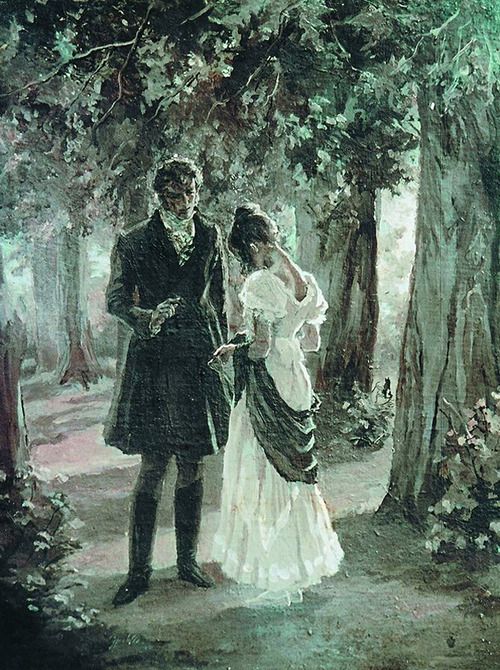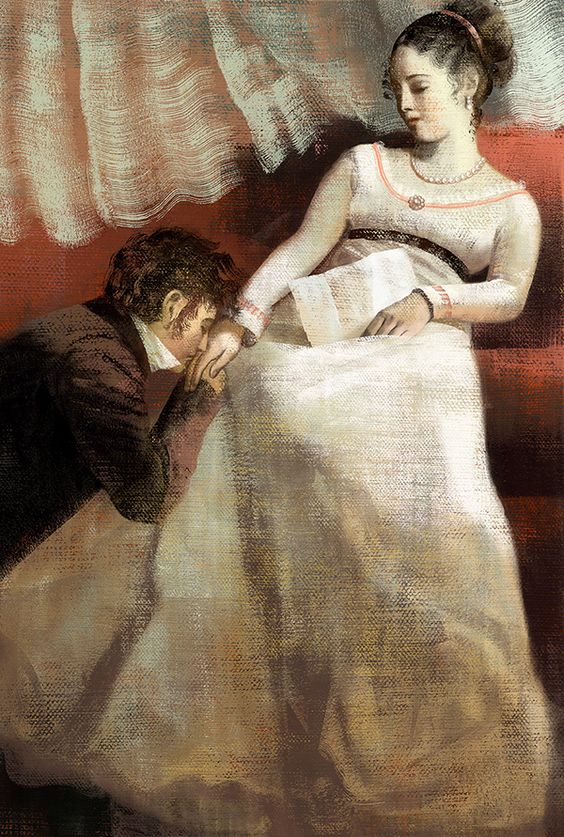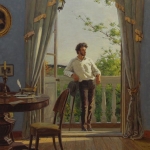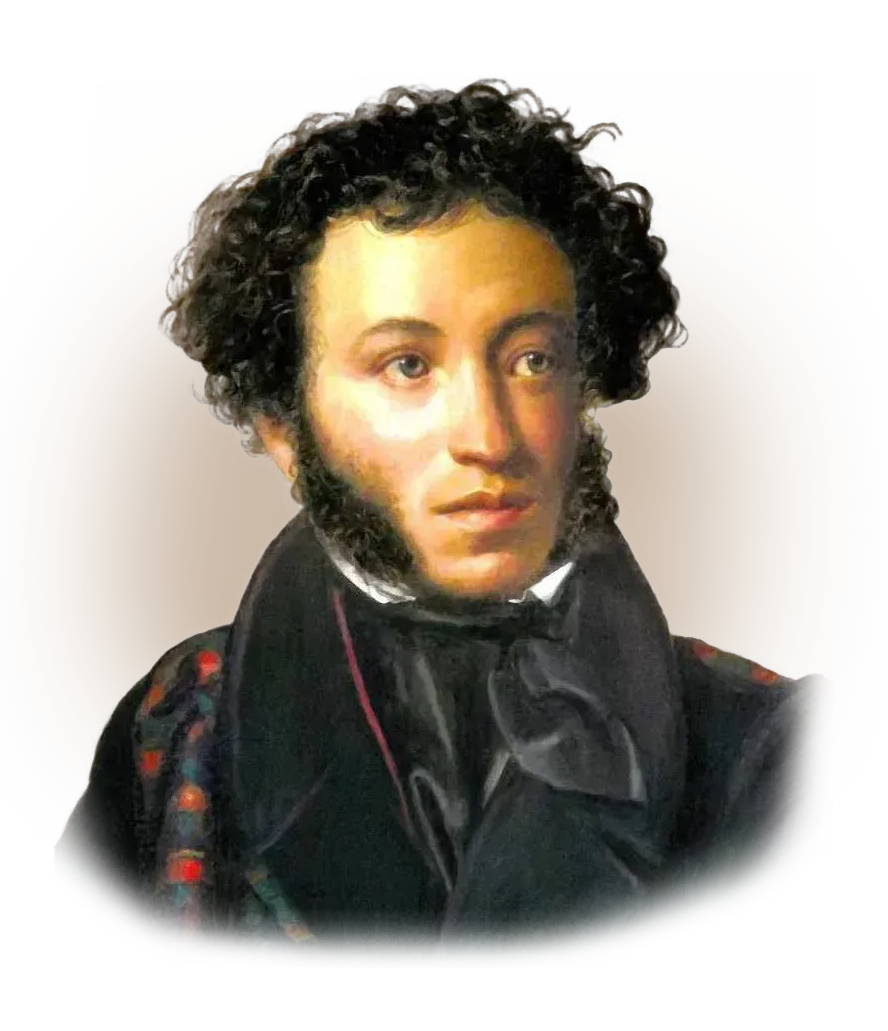
17.10.2023
Alexander Pushkin, the visionary poet and writer, gifted the world not only with exquisite verses but also with an array of vibrant characters that have become immortal in the realm of literature. Through his masterful storytelling, Pushkin breathed life into a multitude of personalities, each leaving an indelible mark on the reader’s imagination. Here, we explore some of the most vivid and significant characters in Pushkin’s literary universe, characters whose complexities and depth continue to captivate readers worldwide.

1. Eugene Onegin (Eugene Onegin, 1833):
Eugene Onegin, the titular character of Pushkin’s iconic novel in verse, embodies the quintessential Byronic hero. A man of immense charm, intelligence, and sophistication, Onegin is also marked by his cynicism and emotional detachment. His tragic journey, exploring unrequited love and existential ennui, makes him one of literature’s most profound and enigmatic figures.
2. Tatiana Larina (Eugene Onegin, 1833):
Tatiana Larina, the epitome of youthful innocence and romantic idealism, stands in stark contrast to Onegin. Her transformation from a naive country girl to a resilient, mature woman is beautifully portrayed by Pushkin. Tatiana’s passionate love letter to Onegin and her eventual rejection of him showcase her strength and depth of character, making her one of the most beloved heroines in literature.
3. The Queen of Spades (The Queen of Spades, 1834):
Hermann, the obsessive and calculating protagonist of “The Queen of Spades,” is a character shrouded in mystery and intrigue. His unrelenting pursuit of the secret to winning at cards leads him down a dark and tragic path. Pushkin’s portrayal of Hermann’s descent into madness and obsession is a chilling exploration of the human psyche.
4. Boris Godunov (Boris Godunov, 1825):
Boris Godunov, the historical figure and protagonist of Pushkin’s play, is a complex character torn between ambition and guilt. As he ascends to power and grapples with the moral consequences of his actions, Boris becomes a symbol of the struggle for legitimacy and the burdens of leadership. Pushkin’s nuanced depiction of Boris Godunov offers a profound meditation on power and its corrupting influence.
5. The Captain’s Daughter (The Captain’s Daughter, 1836):
Pugachev, the charismatic rebel leader in “The Captain’s Daughter,” is a captivating blend of charm and ruthlessness. Inspired by historical events, Pugachev’s character embodies the allure of rebellion and the complexities of loyalty and betrayal. Pushkin’s portrayal of Pugachev’s ability to inspire a revolt and his interactions with the protagonist, Pyotr Grinyov, make him a memorable antagonist.
6. Ruslan and Ludmila (Ruslan and Ludmila, 1820):
Pushkin’s fairy tale poem features a host of fantastical characters, including the brave knight Ruslan and the enchanting princess Ludmila. The poem weaves together elements of Russian folklore, magic, and heroism, creating a timeless narrative that has captured the imagination of generations. Ruslan’s courage and Ludmila’s grace have made them enduring symbols of love and adventure.
In conclusion, Pushkin’s literary genius lies not only in his poetic prowess but also in his ability to craft characters of unparalleled depth and complexity. These characters, with their flaws, virtues, and human dilemmas, continue to resonate with readers, offering profound insights into the human condition. Pushkin’s legacy is not just in his words but in the immortal souls he breathed life into, characters who will forever wander the corridors of literary history, inviting readers to explore the depths of their own humanity.
You may also like:

17.10.2023
Pushkin's Stylistic Brilliance and His Enduring Impact on Russian Poetry

25.04.2023
Alexander Pushkin's relations with his contemporaries

25.04.2023
What kind of links did the authorities send Alexander Pushkin to?

25.04.2023
Did Alexander Pushkin openly criticize the government?
